Vintage Theatre launches its 25th season with Sondheim’s tricky showbiz tragedy, carried by stellar performances even as the production stumbles technically.
It’s not hard to see why Stephen Sondheim and George Furth’s Merrily We Roll Along baffled audiences at its 1981 premiere and closed after only 16 performances. The musical runs in reverse, starting with friendships in ruins and fame curdled into regret, before winding back to the rooftop where three bright-eyed dreamers first vowed to conquer the world.
Merrily‘s structure is as ingenious as it is cruel: Every moment of youthful promise is haunted by what we already know is coming. Audiences balked at its reverse chronology and unsparing look at showbiz dreams gone sour. Who wants to start with divorce, betrayal and alcoholism, only to wind backwards into youthful hope that we already know will be squandered?
Over the years, Merrily has been heavily revised and re-examined in multiple productions, culminating in the splashy 2023 Broadway revival that turned a one-time flop into one of the buzziest productions in NYC. Vintage Theatre clearly sensed the moment was right to bring it to Aurora, where it kicks off the company’s 25th season (and, for those keeping count, its 186th production).
This Merrily is defined by its acting: a winning central trio that believably de-ages before our eyes, crisp storytelling choices from director Bernie Cardell and ensemble vocals that mostly land the Sondheim bite. But persistent sound problems (pre-recorded tracks, feedback and balance issues), occasionally muddied diction and inconsistent design elements undercut the performers.
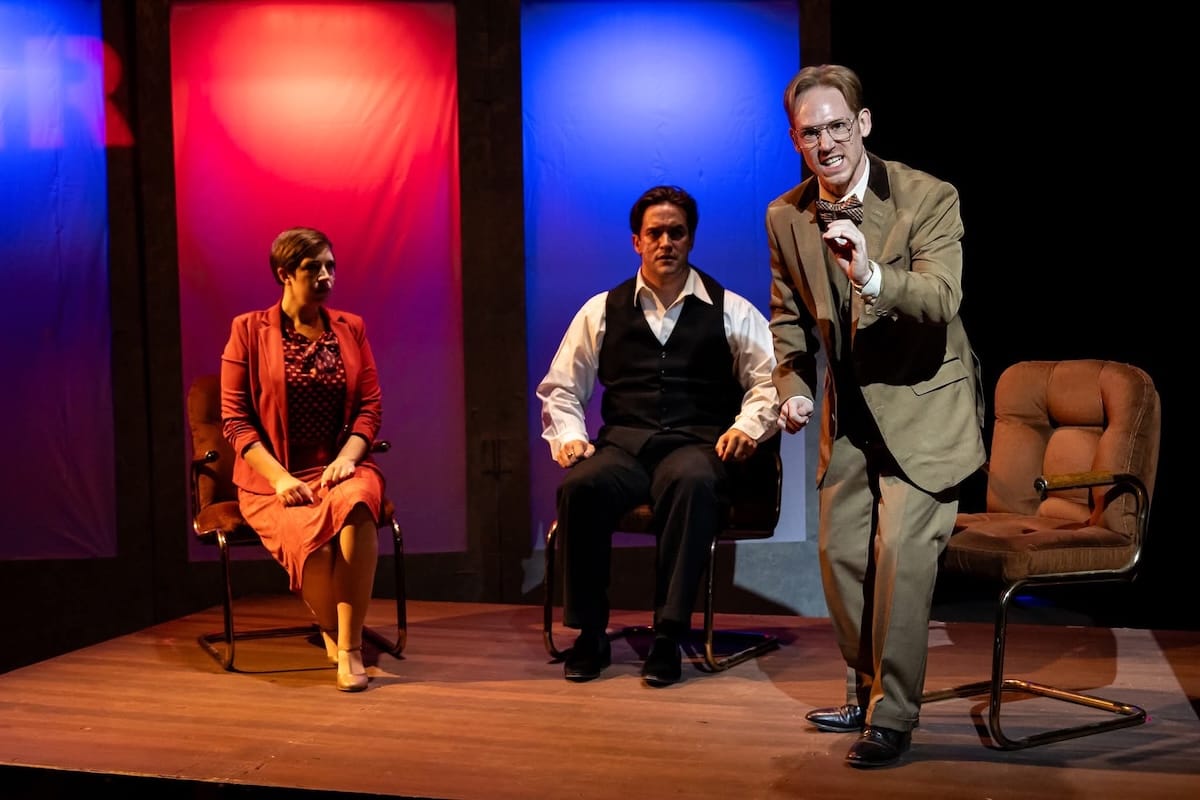
Shaina Levison, Patric Case and Jason Rexx in ‘Merrily We Roll Along’ | Photo: RDGPhotography
A trio to believe in
At its core, Merrily charts the rise and collapse of a friendship among three ambitious creatives: composer Franklin Shepard, lyricist Charlie Kringas and writer Mary Flynn. The story begins at the bitter end, with Frank successful but isolated, Mary drunk, disillusioned and unrequitedly in love with Frank, and Charlie estranged. It then moves backwards in time through the betrayals, compromises and choices that splintered their bond.
The heart of Merrily lies in this complicated relationship between Frank, Charlie and Mary, and here Vintage shines. Patric Case anchors the production as Frank, capturing both the magnetic composer who inspires loyalty and the hollowed-out success story who pushes his friends away.
Best known locally for comic turns at Candlelight Dinner Playhouse in shows like Cats and Joseph and the Amazing Technicolor Dreamcoat, Case proves himself a compelling dramatic lead, brooding and brittle one moment, luminous with musical passion the next. He makes Frank’s descent from idealistic composer to shallow Hollywood sellout achingly believable and has a voice that soars in “Growing Up.”
Jason Rexx brings a tightly wound energy to Charlie, Frank’s artistic conscience and eventual antagonist. His blistering take on “Franklin Shepard, Inc.,” accented by Emily Maddox’s inventive lighting pulses keyed to piano and typewriter motifs, is one of the show’s high points, crackling with both fury and humor. Rexx’s performance balances Charlie’s prickly righteousness with real tenderness in his scenes with Frank, making their eventual split all the more painful.
As Mary, Kara Morrissey rounds out the trio with warmth and emotional candor. Though her drunken bitterness in the opening scene is painted a bit too broadly, she quickly deepens into a heartbreaking portrait of unrequited love. Morrissey’s rendition of the “Not a Day Goes By” reprise at Frank’s wedding is devastating, sung on the edge of tears and leaving more than a few in the audience the same.
Together, this central trio truly sells the melancholic, backwards journey, aided by Susan Rahmsdorff-Terry’s clever costumes that help them visibly shed years as the story rewinds.
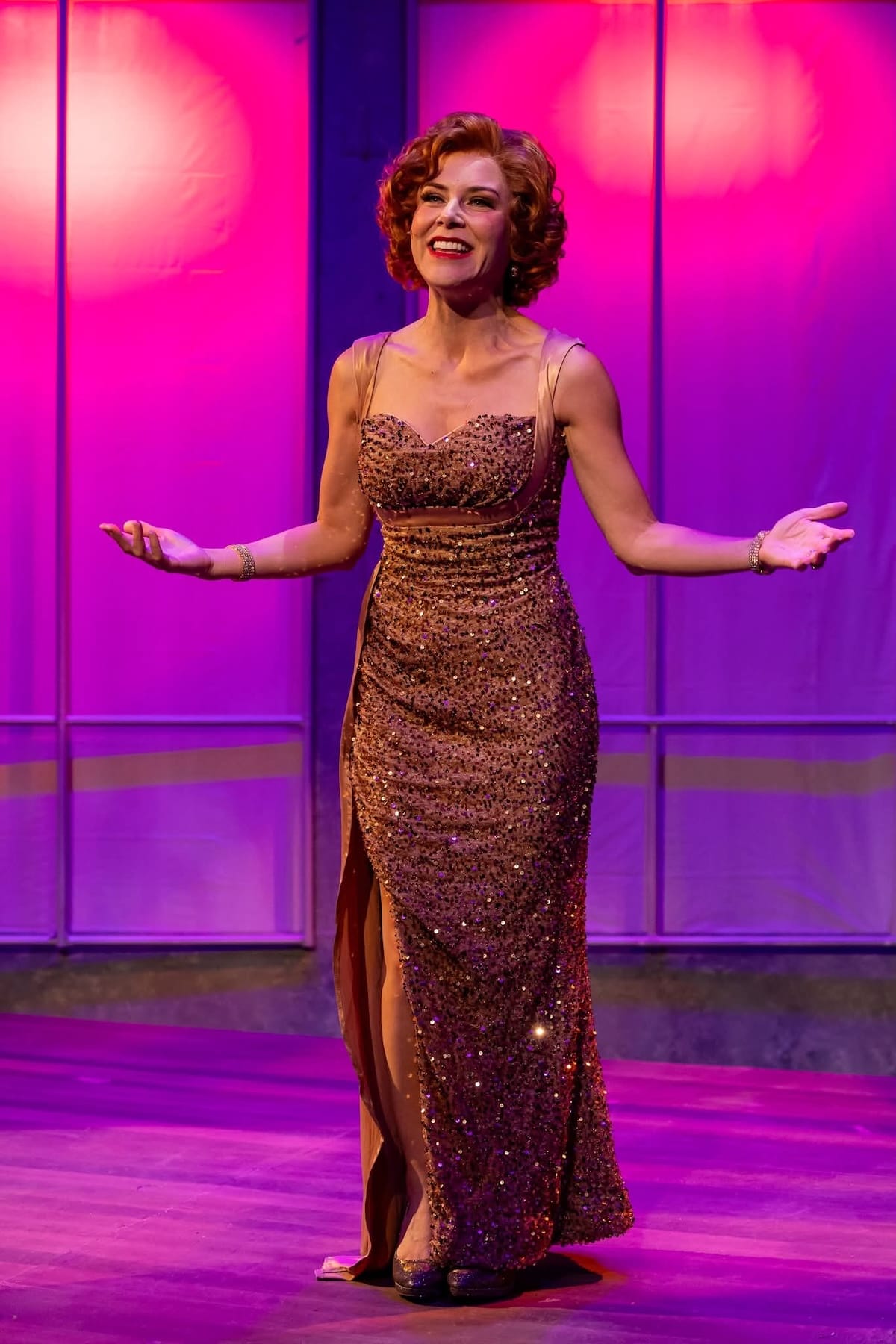
Amanda Byers | Photo: RDGPhotography
Strong support and sharp choreography
The supporting cast adds plenty of color to Merrily’s world. Miranda Byers commands the stage as Gussie Carnegie, playing her first appearance with icy hauteur that makes clear she’s nobody’s victim. Byers excels at layering the character’s shifting roles over time, from the woman scorned to the calculating other woman to a receptionist sleeping with her boss (and future husband). She’s at her most effective in the way she communicates Gussie’s power through the smallest gestures and looks, always suggesting there’s another game happening just beneath the surface.
Madison Falkenstein delivers a standout turn as Beth, Frank’s ill-fated first wife. When we meet her at her lowest point, she is bitter and wounded yet still betrays a soft spot for the man she once loved. Her rendition of “Not a Day Goes By,” sung as she sues Frank for everything he’s worth, is achingly painful and one of the show’s most moving moments.
From there, we watch Falkenstein unravel her marriage in reverse — through the fights, the early joy of performing together, their wedding and finally their hopeful first meeting at an audition. It’s a poignant performance, and Falkenstein has strong chemistry with Case, making the moment near the end of the show when we see Beth in love feel appropriately bittersweet.
Elsewhere, Evan Marquez charts Joe Josephson’s fall from swaggering producer to discarded ex-husband, while the ensemble bolsters the production with energetic vocals and crisp character work. They give the show texture, whether embodying the shallow hangers-on of Frank’s new social circle or populating the idealistic creative world of his youth.
Adrianne Hampton’s choreography ensures the show moves fluidly, without overwhelming a piece that isn’t dance heavy. Spiraling ensemble movements during transitions cleverly echo the backwards structure, while angular, staccato gestures in “The Blob” satirize the empty poses of Frank’s new milieu.
Design that falters
If the cast is Merrily’s greatest strength, the technical execution is its Achilles’ heel. Sondheim’s intricate lyrics demand precision, but diction issues combined with persistent sound problems often obscured the words. On opening weekend, microphones popped, there was feedback, and prerecorded accompaniment tracks occasionally misfired. Without the give-and-take of live musicians, balance was sometimes off, leaving singers fighting the mix instead of soaring over it.
Visually, the production had inspired moments but lacked polish. Emily Maddox’s lighting design delivered clever flourishes but elsewhere left actors stranded in darkness, particularly downstage left and right.
Don Fuller’s set, built around shifting panels that reconfigured into windows and backdrops, worked conceptually but too often looked unfinished. The somewhat tedious scene changes occasionally slowed the pace, and scuffed furniture pieces undercut the show’s otherwise strong atmosphere.
These may seem like small details, but they matter in a show as structurally demanding as Merrily. When the technical elements falter, they pull attention away from the emotional sweep that the performers work so hard to create.
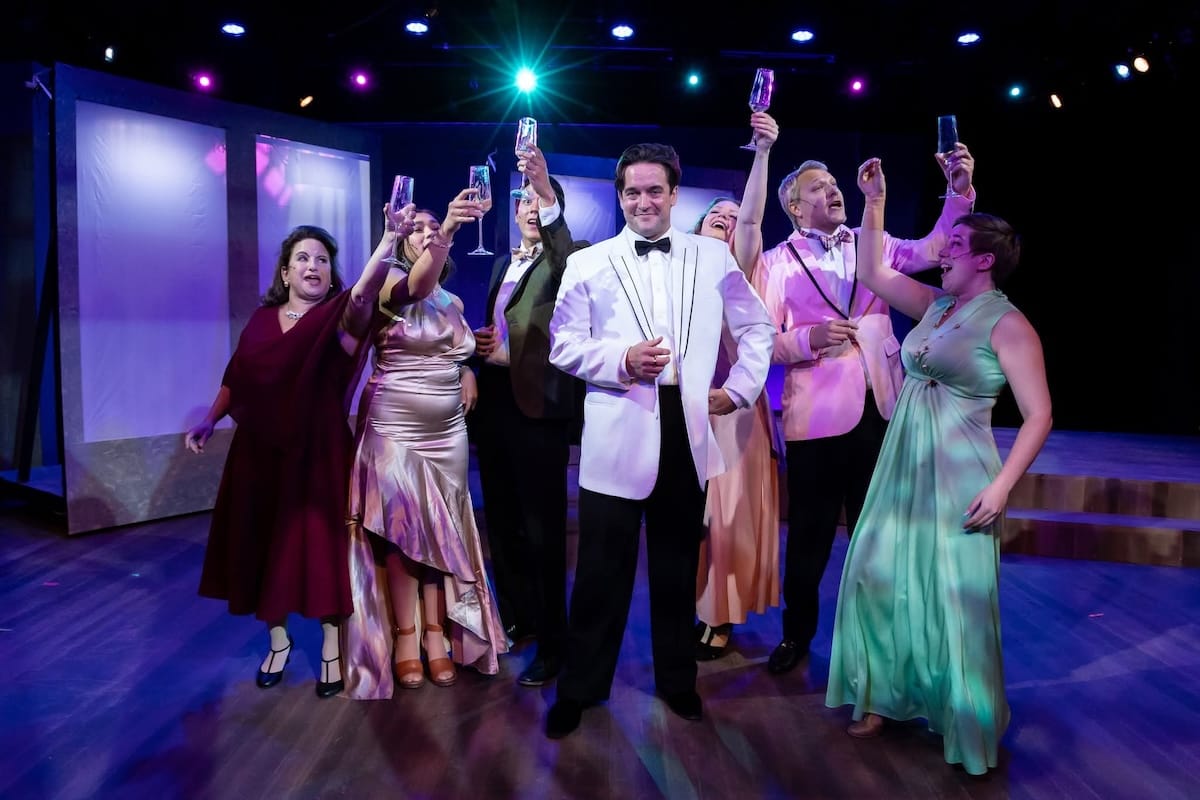
Patric Case and Ensemble | Photo: RDGPhotography
Rolling back with heart
Vintage Theatre deserves credit for programming Merrily. Sondheim’s show is notoriously tricky, musically and structurally, and is rarely produced in Colorado.
Cardell’s staging succeeds in the most important respect: making us believe in the central friendship and mourn its dissolution. The production captures the show’s emotional core thanks to its powerhouse leads, even if the uneven technical elements aren’t always at their level.
In the end, this Merrily may not achieve perfection, but it does make you feel the sting of dreams deferred, the ache of friendships lost and the bittersweet beauty of beginnings we can never get back. For all its bumps, Vintage’s production reminds us why Sondheim’s once-maligned musical has endured — because even in reverse, its heartbreak rings true.
A Colorado-based arts reporter originally from Mineola, Texas, who writes about the changing world of theater and culture, with a focus on the financial realities of art production, emerging forms and arts leadership. He’s the Managing Editor of Bucket List Community Cafe, a contributor to Denver Westword and Estes Valley Voice, resident storyteller for the Bonfils-Stanton Foundation and co-host of the OnStage Colorado Podcast. He holds an MBA and an MA in Theatre & Performance Studies from CU Boulder, and his reporting and reviews combine business and artistic expertise.
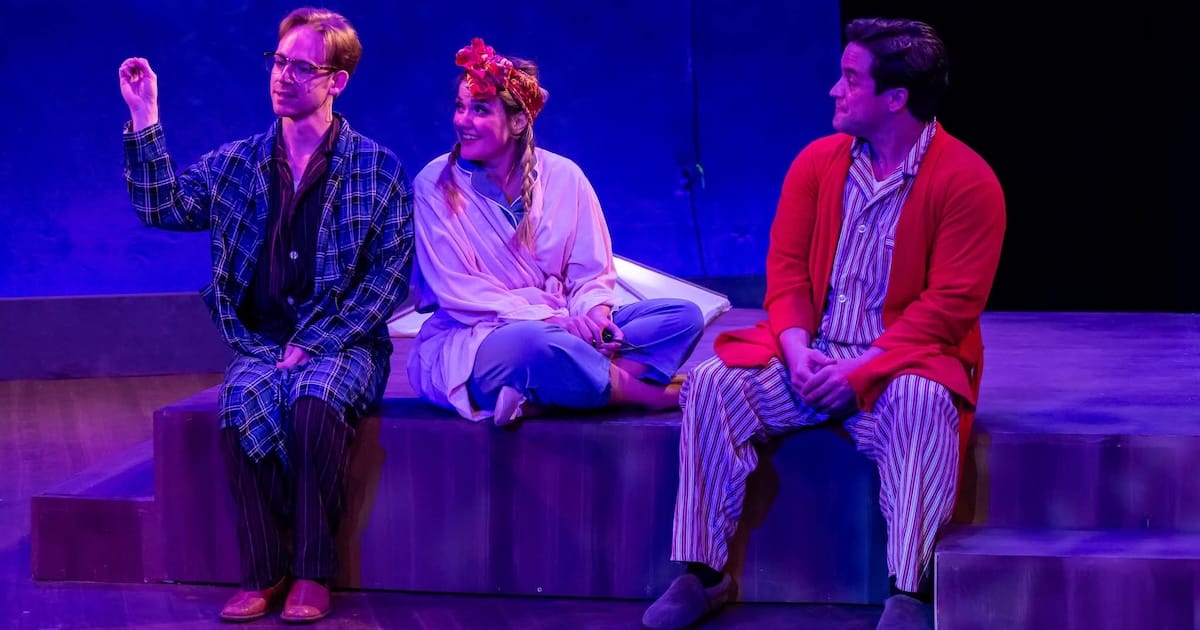

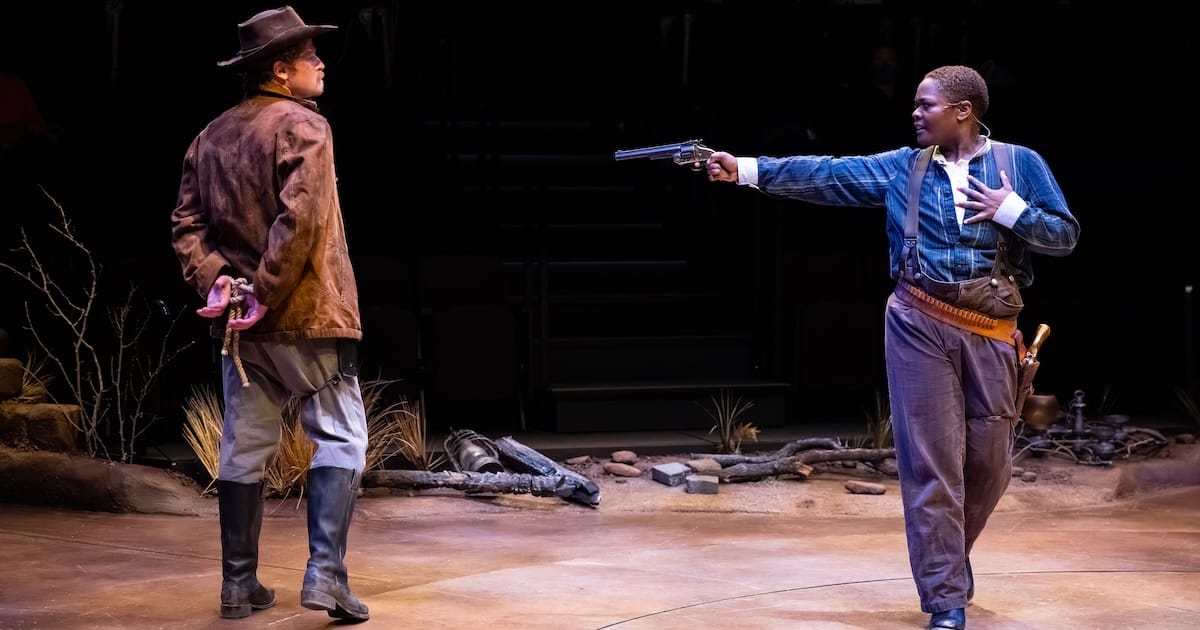
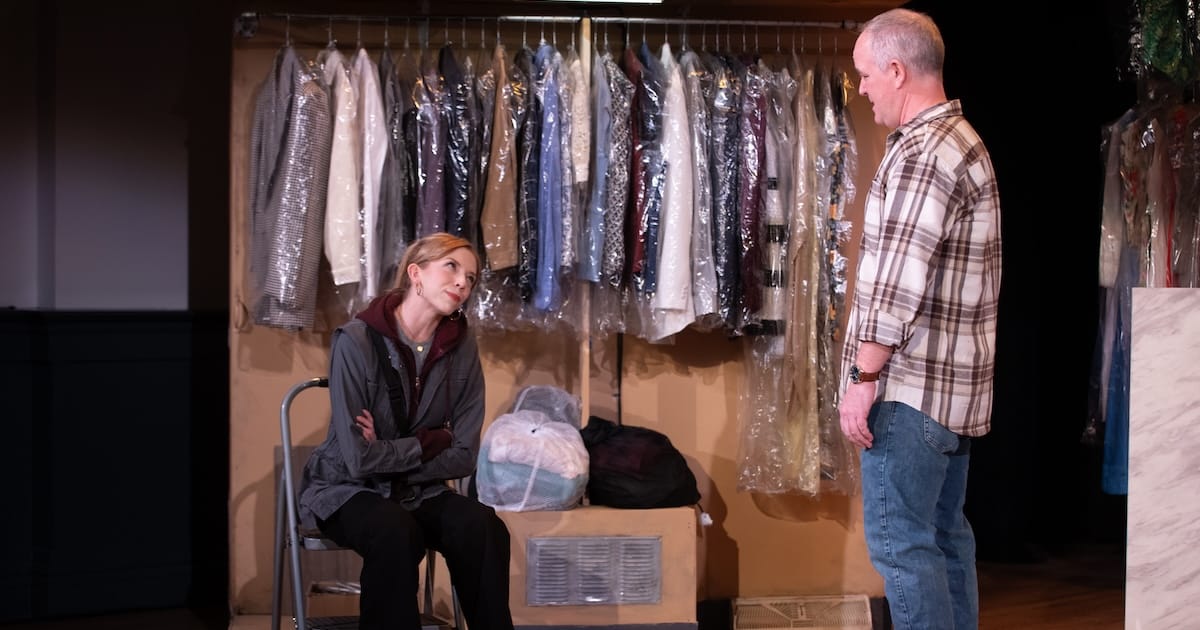
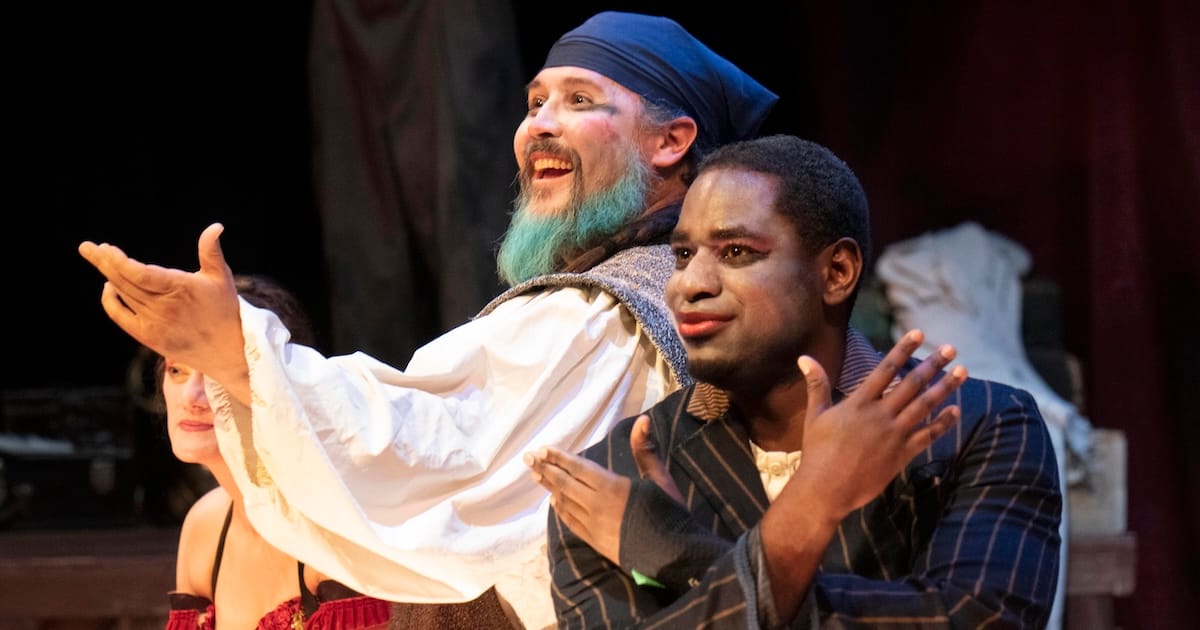

Leave A Comment